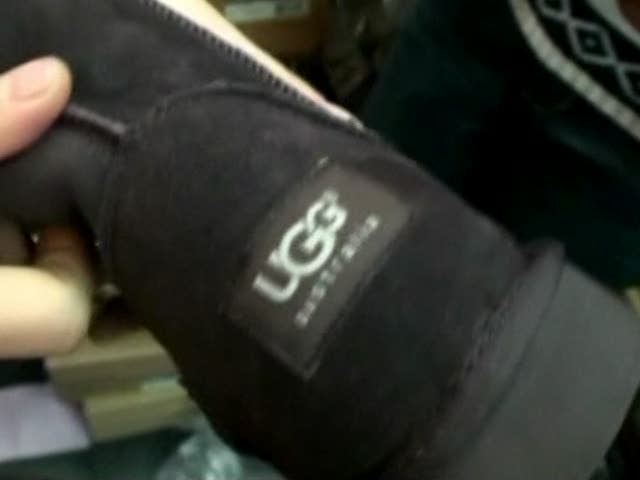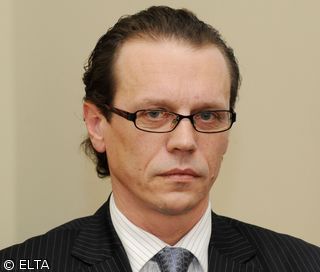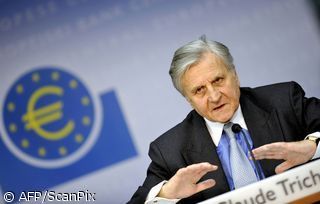Taxpayers in the quickly growing former communist state say rates are too high, but the Government complains that too many people and firms pay too little tax
Published:
16 November 2003 y., Sunday
When Michal, a 30-year-old financial manager at a large firm in Slovakia, set up a cultural foundation two years ago, he did not do it for the arts. He wanted to avoid paying tax.
Like tens of thousands of Slovaks the Government suspects of dodging their obligations, Michal went to great lengths to avoid paying the top tax rate of 38 per cent.
Taxpayers in the quickly growing former communist state say rates are too high, but the Government complains that too many people and firms pay too little tax, leaving it struggling to finance schools, roads and other projects and services.
That may soon be history because laws pushed through Parliament last month will introduce a flat 19 per cent income, corporate and value-added tax rate in January.
The Government hopes the new system will ease collection, stop rampant evasion and boost economic growth ahead of Slovakia's entry to the EU in May.
With a complex system that is strong on loopholes and weak on enforcement, Slovakia's 5.4 million people joke that avoiding and evading taxes is a national sport.
Leaders hope the reforms will replicate Russia's experience, where the Government set a flat rate of 13 per cent and watched revenue soar almost 40 per cent from 2000 to last year.
Šaltinis:
nzherald.co.nz
Copying, publishing, announcing any information from the News.lt portal without written permission of News.lt editorial office is prohibited.
The most popular articles
 Today, the Commission published a Communication which outlines the most serious tax problems that EU citizens face in cross-border situations and announces plans for solutions.
more »
Today, the Commission published a Communication which outlines the most serious tax problems that EU citizens face in cross-border situations and announces plans for solutions.
more »
 The European Commission has opened a formal investigation under EU state aid rules to examine a number of support measures, including several capital injections and shareholder loans, that the Hungarian authorities granted to Malév-Hungarian Airlines in the context of its privatisation and subsequent renationalisation.
more »
The European Commission has opened a formal investigation under EU state aid rules to examine a number of support measures, including several capital injections and shareholder loans, that the Hungarian authorities granted to Malév-Hungarian Airlines in the context of its privatisation and subsequent renationalisation.
more »
 Internet and lax customs enforcement drive growth of 600 billion US dollar counterfeit goods industry.
more »
Internet and lax customs enforcement drive growth of 600 billion US dollar counterfeit goods industry.
more »
 350 million people rose out of poverty in the past decade, but 1.4 billion are still extremely poor, says the latest report into rural poverty.
more »
350 million people rose out of poverty in the past decade, but 1.4 billion are still extremely poor, says the latest report into rural poverty.
more »
 New plan sets out action to reach 75% employment target for the EU by 2020.
more »
New plan sets out action to reach 75% employment target for the EU by 2020.
more »
 Research Ministers of the EU Member States and Associated Countries, together with the European Commission, are announcing in Brussels today three new pan–European energy research infrastructures.
more »
Research Ministers of the EU Member States and Associated Countries, together with the European Commission, are announcing in Brussels today three new pan–European energy research infrastructures.
more »
 Algirdas Šemeta, Commissioner for Taxation, Customs, Audit and Anti-fraud, is visiting Moscow today to discuss ways in which customs cooperation between the EU and Russia can be reinforced.
more »
Algirdas Šemeta, Commissioner for Taxation, Customs, Audit and Anti-fraud, is visiting Moscow today to discuss ways in which customs cooperation between the EU and Russia can be reinforced.
more »
 Following on from Monday's debate with ECB President Jean-Claude Trichet, MEPs on Tuesday adopted a resolution, by a show of hands, gauging the ECB's performance in 2009 and suggesting actions to be taken in view of the economic situation.
more »
Following on from Monday's debate with ECB President Jean-Claude Trichet, MEPs on Tuesday adopted a resolution, by a show of hands, gauging the ECB's performance in 2009 and suggesting actions to be taken in view of the economic situation.
more »
 The European Parliament today approved €10.5 million in European Globalisation Adjustment Fund aid to over 3,000 people in the Netherlands who lost their printing and publishing sector jobs last year, due to the economic crisis.
more »
The European Parliament today approved €10.5 million in European Globalisation Adjustment Fund aid to over 3,000 people in the Netherlands who lost their printing and publishing sector jobs last year, due to the economic crisis.
more »
 A diamond-studded gold coin engraved with a picture of the Taj Mahal and worth 100,000 euros is unveiled at the Paris mint.
more »
A diamond-studded gold coin engraved with a picture of the Taj Mahal and worth 100,000 euros is unveiled at the Paris mint.
more »